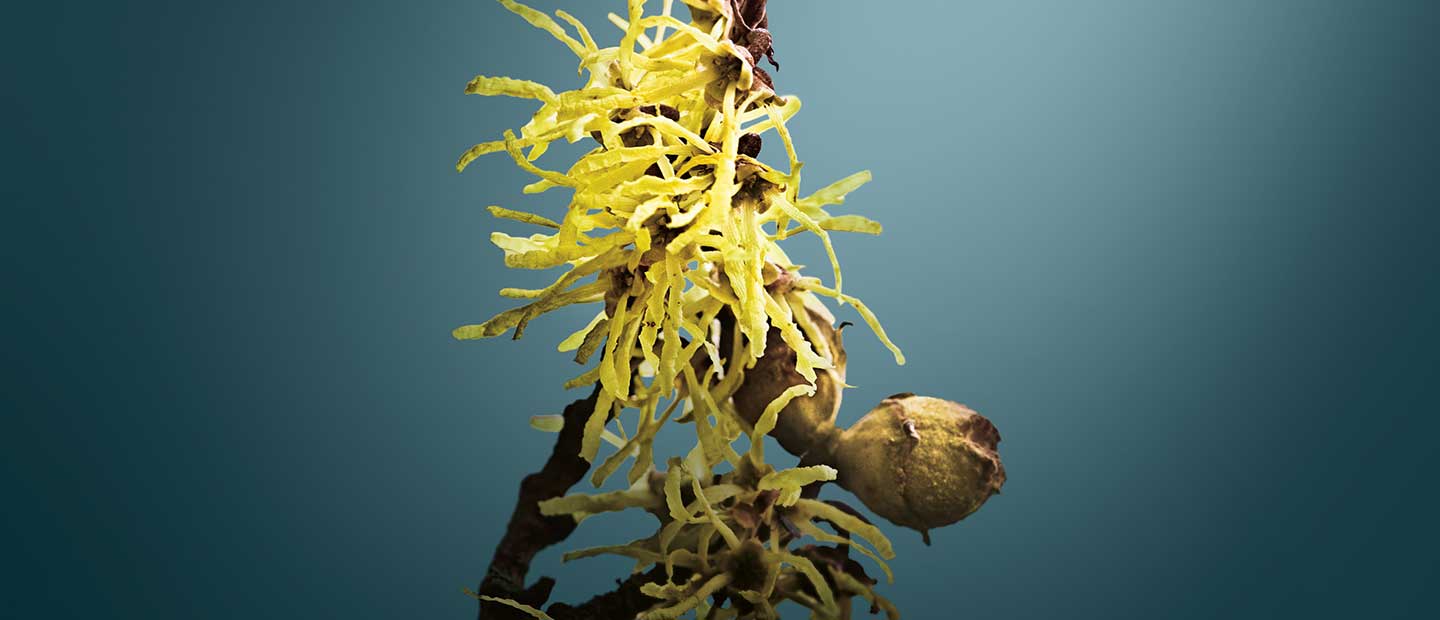Nurturing plants
Obstinate beauty.
The wound-healing properties of witch hazel even made it popular with the indigenous people in its native North America. We, too, love it due to the many beneficial facets it offers for use in our cosmetics.
Beautifully firm.
The leaves, branches and bark of the witch hazel shrub are rich in tannins which can help to tone and refine the appearance of the skin. As a result, witch hazel is a key plant for Dr. Hauschka Skin Care and simply indispensable for our skin care and make-up products.
Its own rhythm.
It blossoms in autumn and winter when all other plants withdraw into themselves and bears its fruits and flowers at the same time. Its courage and strength to follow its own rhythm make witch hazel so beautiful and special.
Pop goes the witch hazel.
Once the witch hazel’s woody capsules have dried out, you should tie a large bow around the shrub. This is because the capsules can suddenly burst open with a pop, scattering their seeds for metres around – at speeds of over twelve metres per second.
No fear of frost.
Surely you can’t have delicate yellow flowers in a snowy landscape… Witch hazel knows a trick that makes this possible: when the weather turns cold, it simply rolls up its flowers and waits for it to warm up again. This enables the flowering shrub to withstand temperatures of as low as -10°C.
Solitary plants.
Witch hazel shrubs prefer to keep their distance from neighbouring plants and do not like their roots getting too close. It can take up to three years for a shrub to get used to a new location.

